
Bobo-Dioulasso: The Heartbeat of Burkina Faso's Culture
Discover the cultural heartbeat of Burkina Faso in Bobo-Dioulasso, where vibrant markets, historical landmarks, and a rich musical heritage await.
Bobo-Dioulasso, often referred to simply as Bobo, is a city that pulses with a unique blend of traditional African culture and French colonial history. Located in the southwestern region of Burkina Faso, this city is known for its vibrant music scene, bustling markets, and warm, welcoming locals. Start your journey by exploring the Grand Mosque of Bobo-Dioulasso, a stunning example of Sudanese mud-brick architecture. This iconic mosque, built in the late 19th century, offers a glimpse into the city's rich Islamic heritage. Just a short walk away, you'll find the old Kibidwé district, where narrow, winding streets are lined with traditional mud houses and artisans' workshops. For a taste of local life, head to the Grand Marché, the city's main market. Here, you can browse stalls brimming with colorful fabrics, handmade crafts, and fresh produce. Don't miss the opportunity to sample local delicacies like tô, a staple dish made from millet or maize, and savory brochettes. Music lovers will be enchanted by Bobo-Dioulasso's lively music scene. The city is renowned for its traditional balafon and djembe performances, which can be enjoyed at open-air venues and cultural festivals. If you're lucky, you may even catch a performance by one of the city's many talented griots, West African storytellers and musicians. Nature enthusiasts should venture to the nearby Domes of Fabedougou, a natural rock formation offering breathtaking views and hiking opportunities. Additionally, the sacred fish pond of Dafra, located just outside the city, provides a serene spot for reflection and the chance to witness a unique local ritual.
Local tips in Bobo-Dioulasso
- Visit the Grand Mosque early in the morning to avoid the crowds and experience its serene atmosphere.
- Bring local currency (CFA francs) as credit card acceptance is limited in many places.
- Dress modestly, especially when visiting religious sites and local communities.
- Learn a few basic phrases in French to help communicate with locals, as it is widely spoken.
- Stay hydrated and use sun protection, as the climate can be quite hot and dry.
- Explore the local music scene in the evenings for an authentic cultural experience.
Bobo-Dioulasso: The Heartbeat of Burkina Faso's Culture
Bobo-Dioulasso, often referred to simply as Bobo, is a city that pulses with a unique blend of traditional African culture and French colonial history. Located in the southwestern region of Burkina Faso, this city is known for its vibrant music scene, bustling markets, and warm, welcoming locals. Start your journey by exploring the Grand Mosque of Bobo-Dioulasso, a stunning example of Sudanese mud-brick architecture. This iconic mosque, built in the late 19th century, offers a glimpse into the city's rich Islamic heritage. Just a short walk away, you'll find the old Kibidwé district, where narrow, winding streets are lined with traditional mud houses and artisans' workshops. For a taste of local life, head to the Grand Marché, the city's main market. Here, you can browse stalls brimming with colorful fabrics, handmade crafts, and fresh produce. Don't miss the opportunity to sample local delicacies like tô, a staple dish made from millet or maize, and savory brochettes. Music lovers will be enchanted by Bobo-Dioulasso's lively music scene. The city is renowned for its traditional balafon and djembe performances, which can be enjoyed at open-air venues and cultural festivals. If you're lucky, you may even catch a performance by one of the city's many talented griots, West African storytellers and musicians. Nature enthusiasts should venture to the nearby Domes of Fabedougou, a natural rock formation offering breathtaking views and hiking opportunities. Additionally, the sacred fish pond of Dafra, located just outside the city, provides a serene spot for reflection and the chance to witness a unique local ritual.
When is the best time to go to Bobo-Dioulasso?
Iconic landmarks you can’t miss
Parc Bangr Weogo
Discover Parc Bangr Weogo, Ouagadougou's urban oasis: a green escape with trails, wildlife, and cultural insights in the heart of the city.
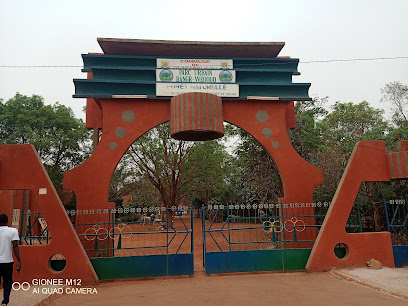
Maison de la Culture
Explore the vibrant arts and culture of Burkina Faso at Maison de la Culture in Bobo-Dioulasso, a dynamic cultural center showcasing local heritage.
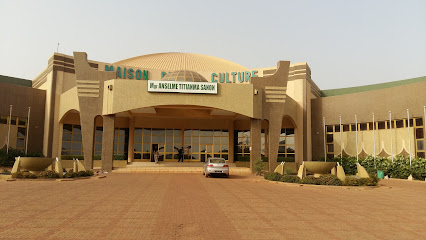
Ouagadougou Cathedral
Explore the stunning Ouagadougou Cathedral, a masterpiece of Roman architecture and a serene sanctuary in Burkina Faso's vibrant capital.
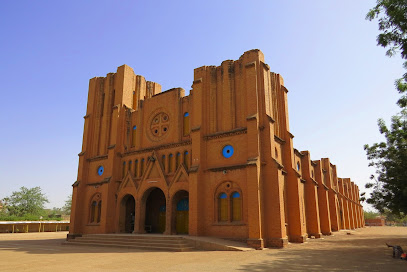
Monument of National Heroes
Discover the rich history and cultural significance of the Monument of National Heroes, a must-see landmark in Ouagadougou, Burkina Faso.
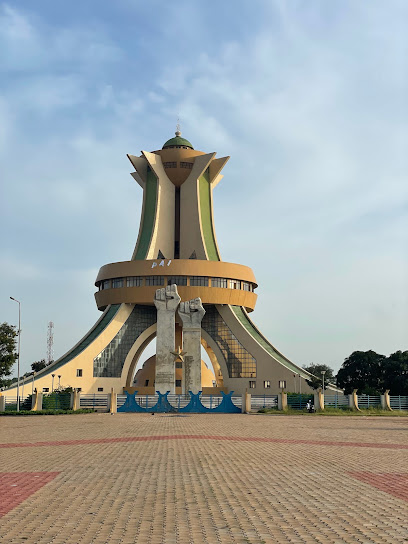
Omnisport Stadium in Bobo Dioulasso
Experience the vibrant sports and cultural scene at Bobo-Dioulasso's Omnisport Stadium, a hub of community life and thrilling events.
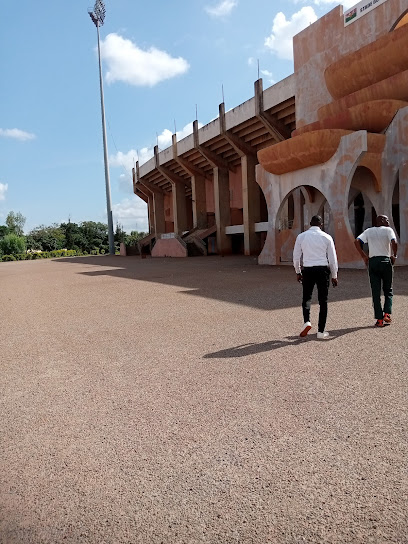
KB et frères
Explore the serene beauty of KB et Frères, a stunning mosque in Ouagadougou that embodies the rich cultural heritage of Burkina Faso.
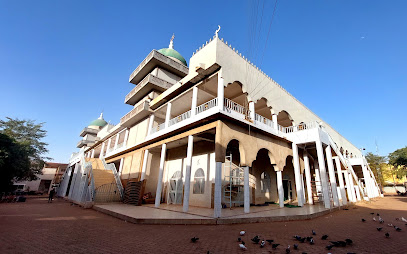
BIBI PARC
Experience thrilling rides and family fun at BIBI PARC, Ouagadougou's top amusement park, offering a memorable day for all ages.
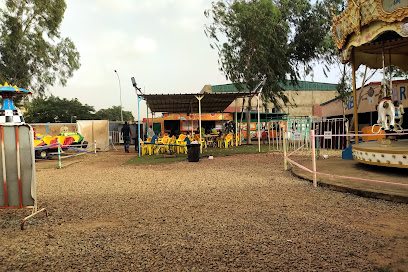
Place de la Femme
Experience the vibrant culture of Bobo-Dioulasso at Place de la Femme, a lively square filled with art, food, and local charm.
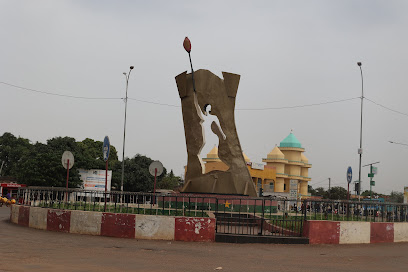
Grande Mosquée de Bobo-Dioulasso
Discover the Grande Mosquée de Bobo-Dioulasso, a stunning architectural landmark reflecting the rich cultural heritage of Burkina Faso.
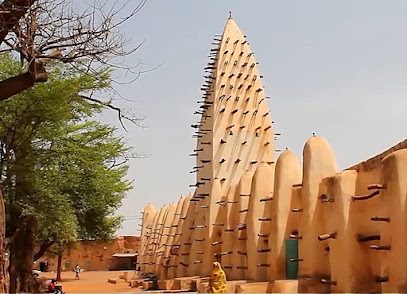
Hotel Villa Rose
Discover serenity at Hotel Villa Rose, a charming retreat in Bobo-Dioulasso with lush gardens and a cozy bar offering local drinks.

Grand marché de Bobo-Dioulasso
Discover the vibrant Grand Marché de Bobo-Dioulasso, a cultural gem where local flavors and crafts come to life in Burkina Faso.
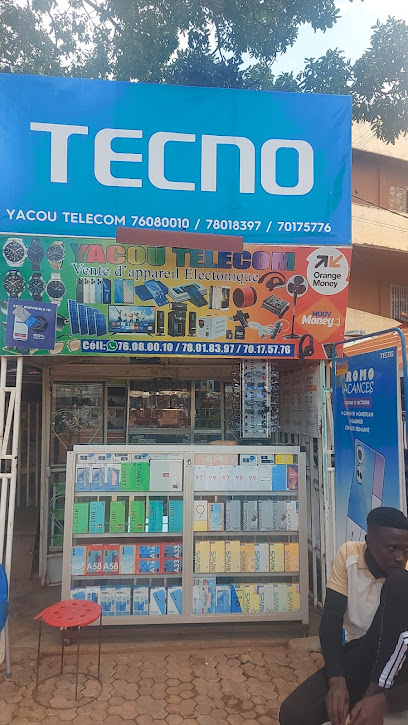
Université AUBE Nouvelle/Bobo Dioulasso
Discover Université AUBE Nouvelle, a vibrant hub of learning and culture in Bobo Dioulasso, embodying the spirit of education in Burkina Faso.
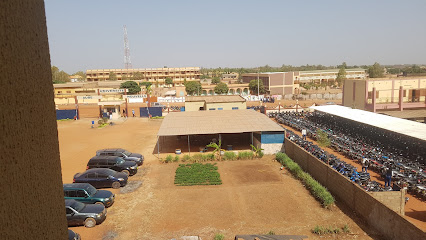
Amora restaurant
Experience diverse flavors at Amora Restaurant in Bobo-Dioulasso, serving everything from pizzas to local Burkinabé cuisine in a relaxed atmosphere.
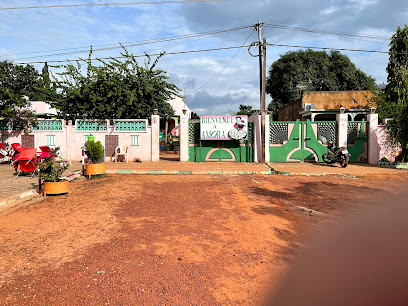
National Museum of Burkina Faso
Discover Burkina Faso's rich cultural heritage at the National Museum in Ouagadougou, showcasing art, history, and traditions.
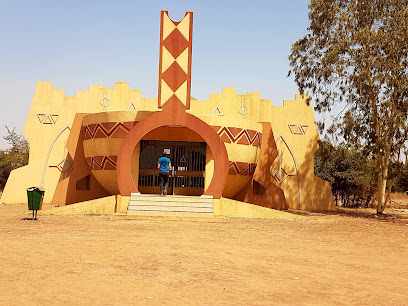
Bobo-dioulasso
Discover Bobo-Dioulasso: a vibrant West African city with rich culture, stunning architecture, and bustling markets, offering an authentic experience.
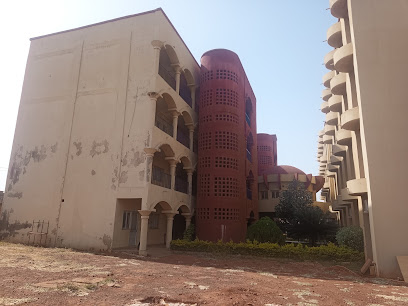
Unmissable attractions to see
Maison de la Culture
Experience the vibrant art and culture of Burkina Faso at Maison de la Culture, the heart of Bobo-Dioulasso's cultural scene.
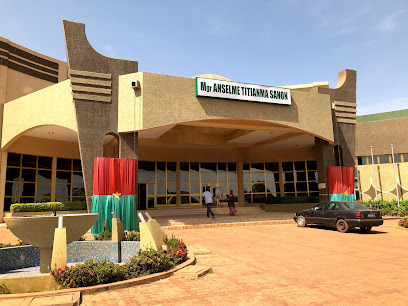
Place de la Femme
Experience the vibrant heart of Bobo-Dioulasso at Place de la Femme, a cultural hub celebrating the strength and contributions of Burkinabé women.
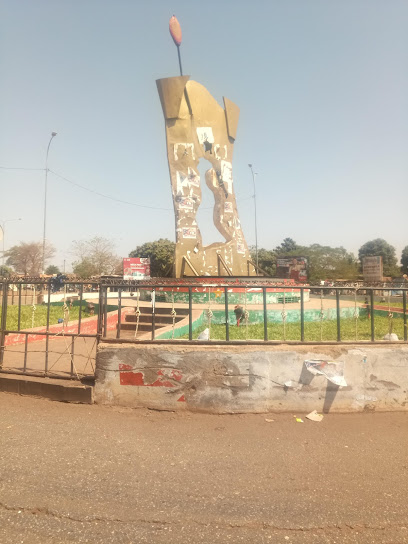
Grande Mosquée de Bobo-Dioulasso
Discover the architectural and cultural significance of Burkina Faso's Grande Mosquée, a symbol of Sahelian heritage and Islamic tradition.
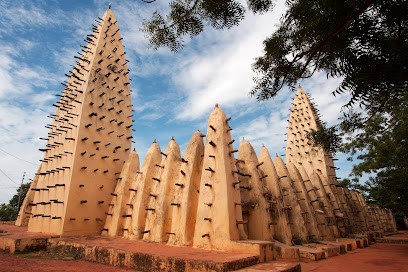
Grand marché de Bobo-Dioulasso
Explore the Grand Marché de Bobo-Dioulasso, a vibrant market filled with local culture, artisanal crafts, and delicious West African cuisine.
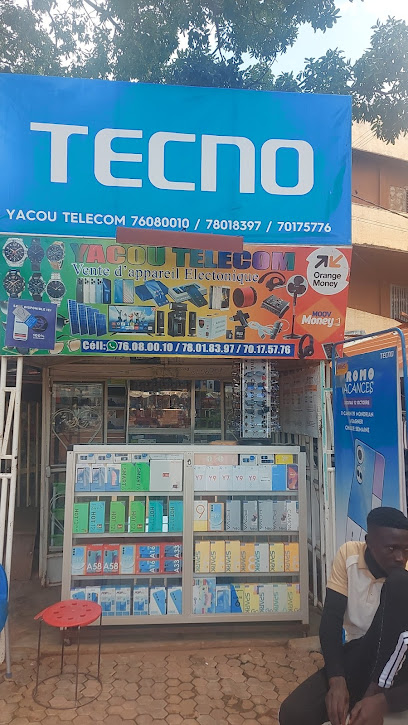
Andrea Magicland Espace de jeux
Bobo-Dioulasso's premier amusement park, offering a fun and safe environment for families with playgrounds, dining, and a boutique.
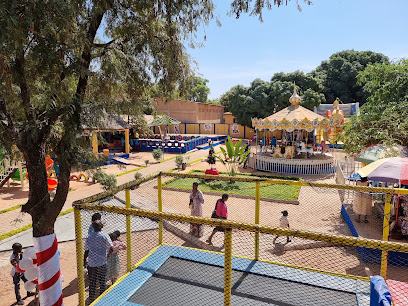
Les Cascade de Banfora
Explore the breathtaking Les Cascade de Banfora, a stunning natural wonder in Burkina Faso with mesmerizing waterfalls and lush landscapes.
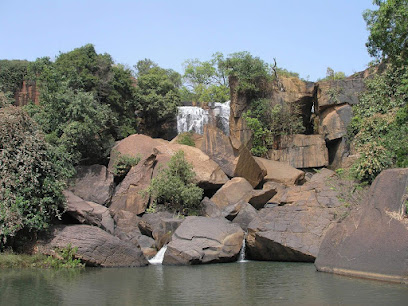
Paroisse Cathédrale Notre Dame des Lourdes
Discover the enchanting Paroisse Cathédrale Notre Dame des Lourdes in Bobo-Dioulasso, a stunning blend of history and spirituality in Burkina Faso.
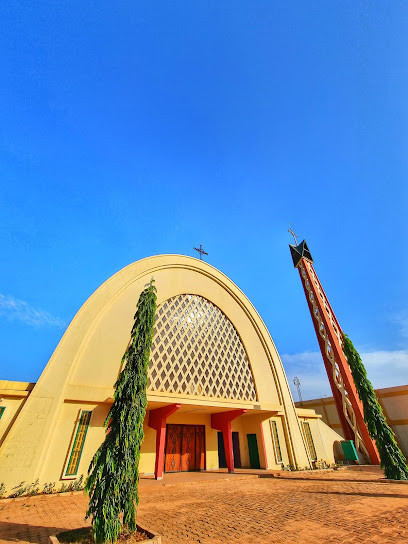
Musée communal Sogossira Sanou
Explore the rich cultural heritage of Burkina Faso at Musée communal Sogossira Sanou in Bobo-Dioulasso, showcasing art, history, and local craftsmanship.
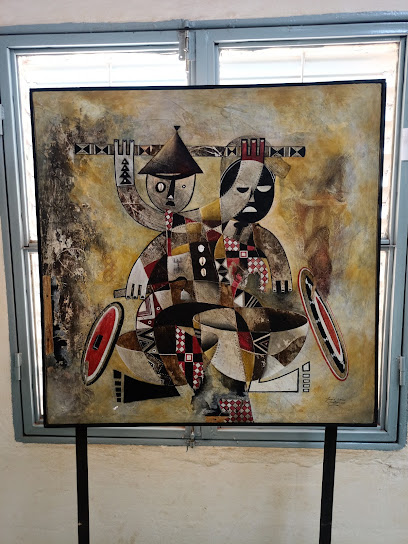
Domes de Fabedougou
Discover the breathtaking Domes de Fabedougou in Karfiguela, a natural wonder showcasing unique geological formations and stunning landscapes.
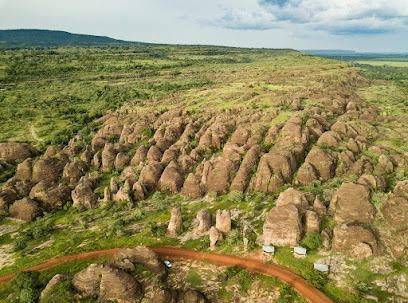
Essential places to dine
Restaurant DanKan
Experience authentic Burkinabe cuisine at Restaurant DanKan in Bobo-Dioulasso—where tradition meets taste!
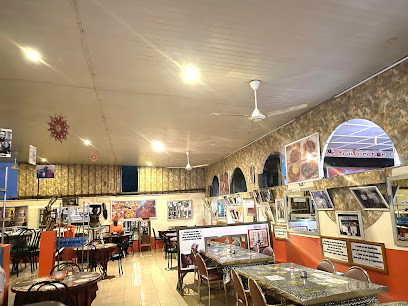
Restaurant Don Gregory
Experience authentic Burkinabé cuisine at Restaurant Don Gregory in Bobo-Dioulasso - where flavor meets tradition.
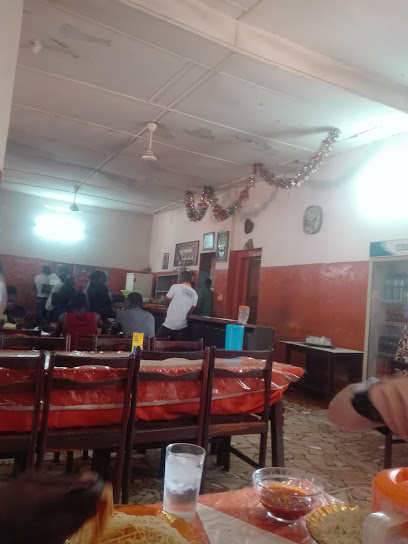
Africa Cafe Bobo
Discover authentic Burkinabe cuisine at Africa Cafe Bobo in Bobo-Dioulasso - where every meal tells a story.
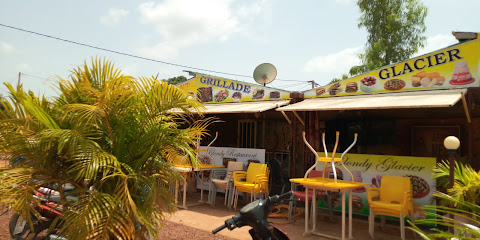
Le royal
Discover authentic Burkinabé cuisine at Le Royal in Bobo-Dioulasso - where every dish tells a story.
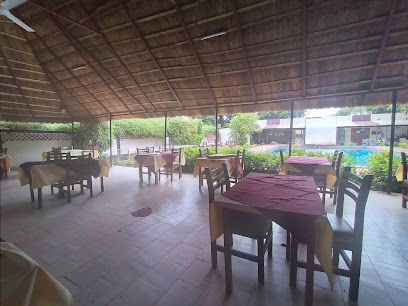
Amora restaurant
Discover authentic Burkinabe flavors at Amora Restaurant in Bobo-Dioulasso – where local cuisine meets delightful ambiance.
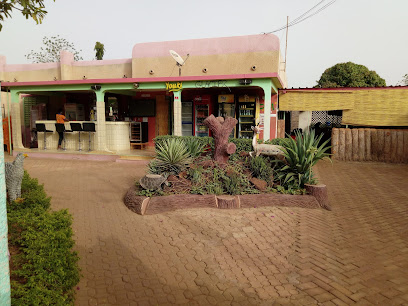
L'Eau Vive
Discover authentic Burkinabé flavors at L'Eau Vive in Bobo-Dioulasso - where every meal tells a story.
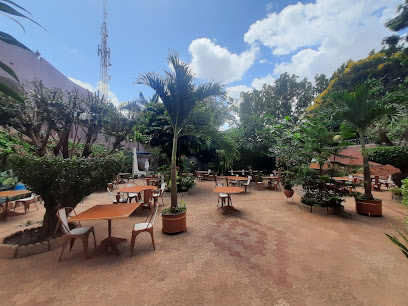
DANY ICE
Discover the sweet side of Bobo-Dioulasso at DANY ICE, where delectable pastries meet authentic local cuisine in a cozy atmosphere.
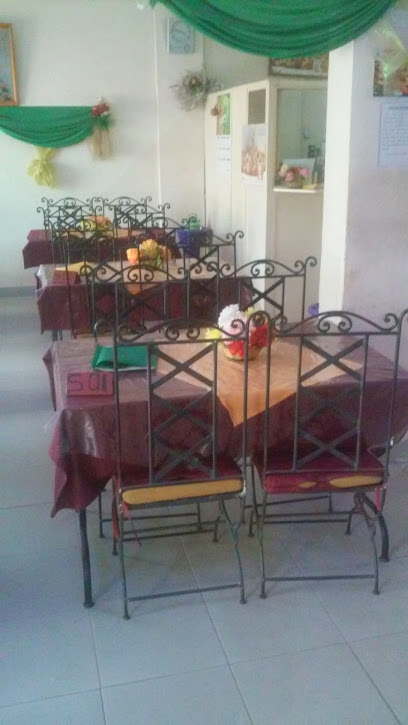
Auberge Restaurant La Canne d'Or
Experience authentic Burkinabé cuisine at Auberge Restaurant La Canne d'Or in Koko, Bobo-Dioulasso - a blend of flavor and warm hospitality.
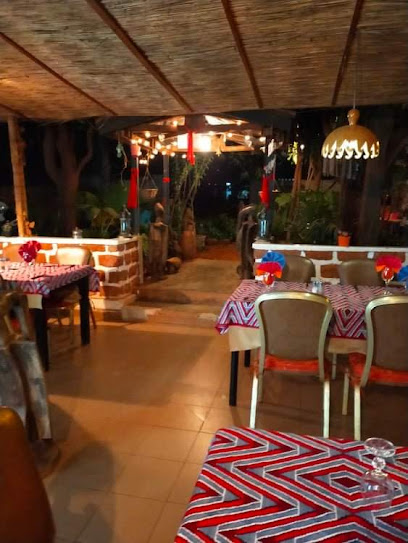
Restaurant Velar
Discover authentic Burkinabé flavors and international delights at Restaurant Velar in Bobo-Dioulasso - perfect for every palate.
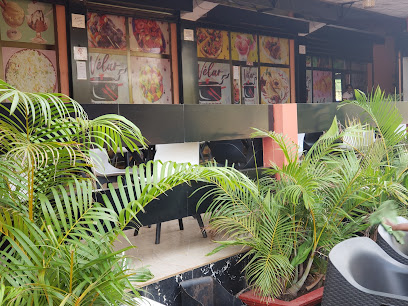
Bois d'ebene - Espace Culturel et Musical - Restaurant Cabaret
Discover Bobo-Dioulasso's culinary delights and vibrant live performances at Bois d'ebene - Espace Culturel et Musical.
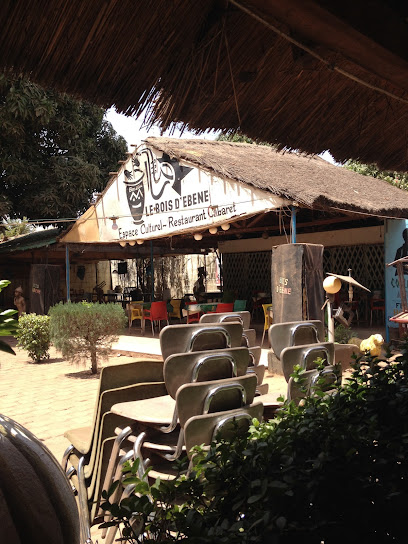
Taste of Tandoor & Multi cuisine Indian restaurant
Experience authentic Indian flavors at Taste of Tandoor in Bobo-Dioulasso - where culinary traditions meet local charm.
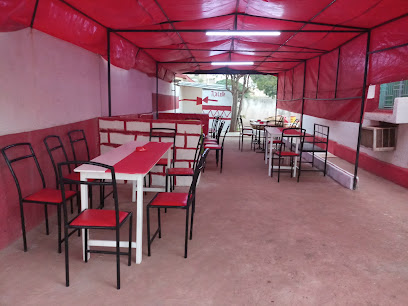
Dalya space
Discover authentic French cuisine at Dalya Space in Bobo-Dioulasso - where delightful flavors meet charming ambiance.
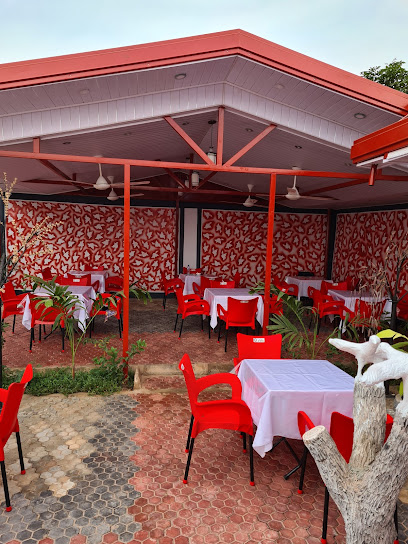
Restaurant Dankan
Experience authentic Burkinabé cuisine at Restaurant Dankan in Bobo-Dioulasso—where tradition meets taste.
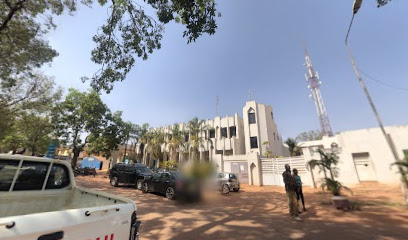
Restaurant Akwaba
Experience authentic Burkinabé cuisine at Restaurant Akwaba in Bobo-Dioulasso – where flavor meets hospitality.
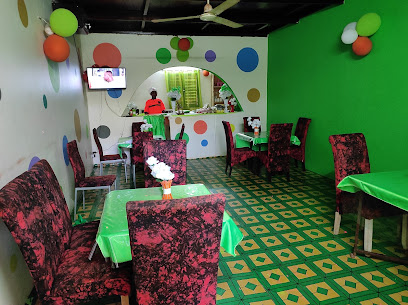
Restaurant Code Secret
Experience authentic Burkinabé cuisine at Restaurant Code Secret, a hidden gem in Bobo-Dioulasso offering delicious meals and warm hospitality.
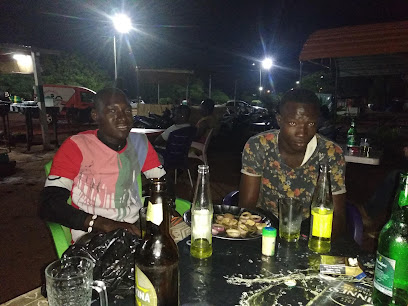
Markets, malls and hidden boutiques
Marina Market
Discover the heart of Bobo-Dioulasso at Marina Market, a vibrant supermarket filled with local flavors and diverse products.
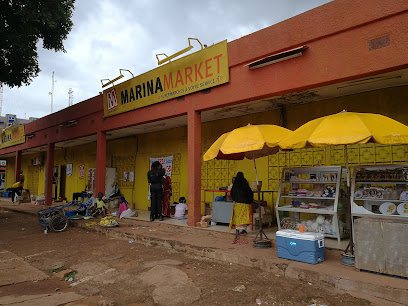
SUPER BOUTIQUES YAMEOGO & FR£R£
Explore the vibrant offerings of SUPER BOUTIQUES YAMEOGO & FR£R£ in Bobo-Dioulasso, where local culture meets diverse shopping.
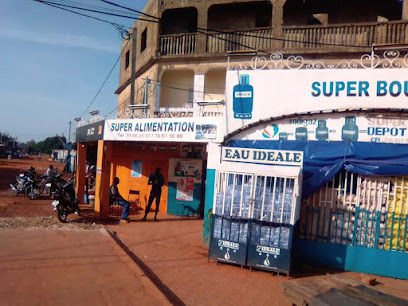
Hamad bk shopping
Discover unique local crafts and unforgettable souvenirs at Hamad bk Shopping in Bobo-Dioulasso, Burkina Faso.
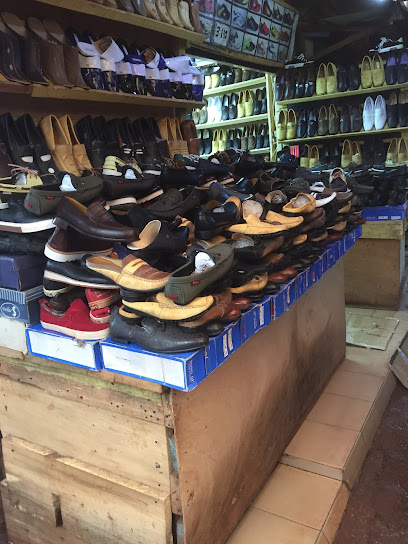
SAYOUBA BOUTIQUE
Explore the vibrant world of Burkinabé art at Sayooba Boutique in Bobo-Dioulasso, your go-to destination for stunning posters and local artistry.
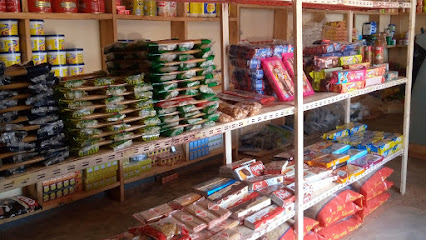
Aloe vera center
Explore the Aloe Vera Center in Bobo-Dioulasso for natural health and beauty products harnessing the amazing benefits of aloe vera.
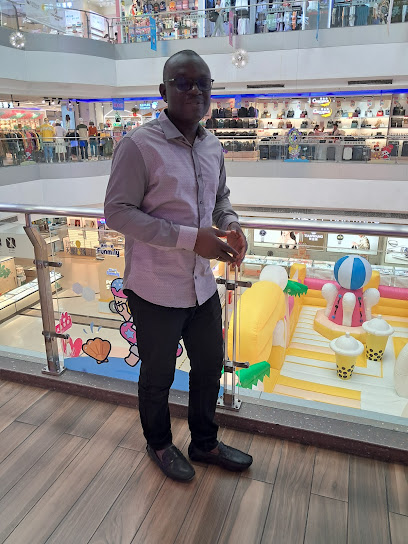
Boutique Zongo
Explore the culinary essence of Burkina Faso at Boutique Zongo, a vibrant supermarket in Bobo-Dioulasso offering local and international delights.
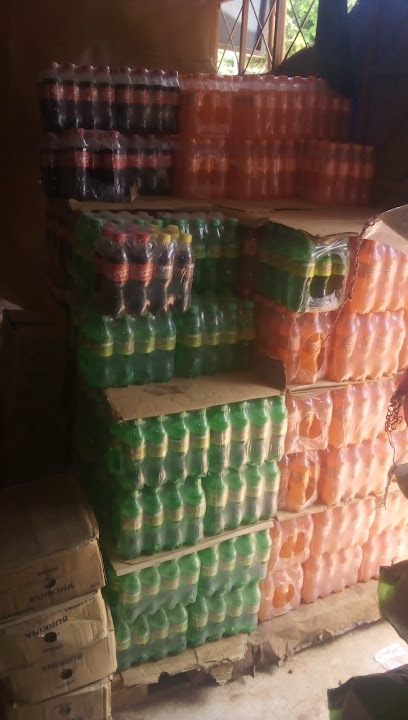
Assami boutique
Discover the vibrant offerings of Assami Boutique, a local supermarket in Bobo-Dioulasso showcasing the best of Burkinabé cuisine and culture.
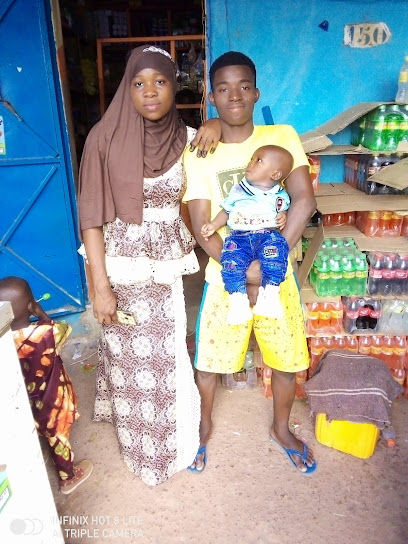
FASO FRIP
Explore FASO FRIP in Bobo-Dioulasso for unique second-hand fashion treasures that reflect local culture and sustainable shopping.
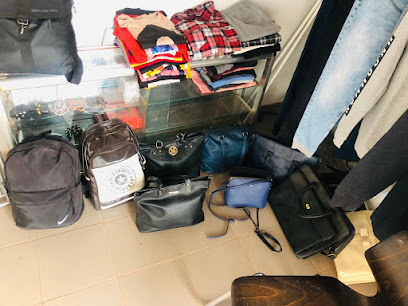
Luumoshop - La boutique en ligne pour les amateurs d'artisanat
Explore Luumoshop in Bobo-Dioulasso for exquisite handcrafted goods that celebrate the beauty of Burkinabé culture and artistry.
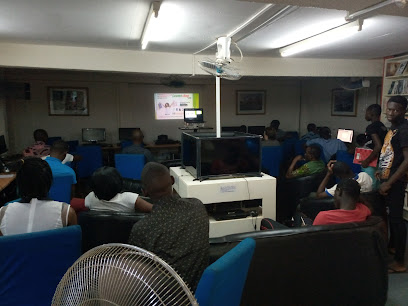
Paradis des bonnes affaires
Explore a unique gift shop in Bobo-Dioulasso offering local crafts and souvenirs that reflect the vibrant culture of Burkina Faso.
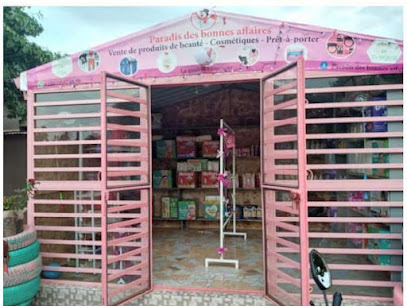
Bazaria bobo dioulasso
Discover the artistic brilliance of Burkina Faso at Bazaria Bobo Dioulasso, a unique lighting store and art gallery blending culture and creativity.
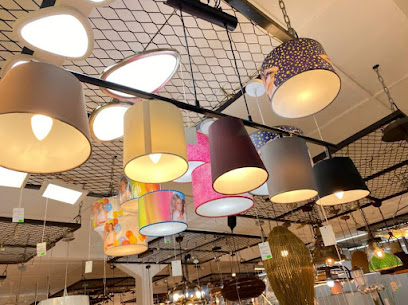
Boutique Parisien
Discover the essence of Bobo-Dioulasso at Boutique Parisien, a charming supermarket offering local produce, snacks, and unique souvenirs.
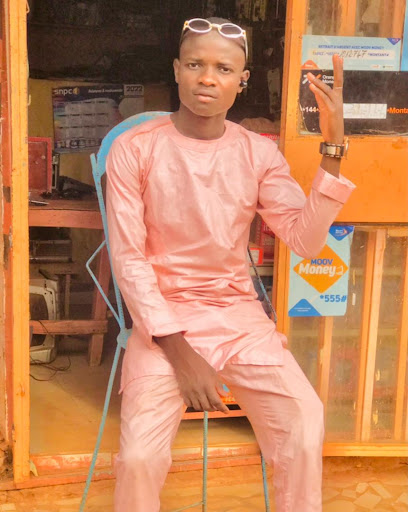
Boutique
Explore the Boutique Shopping Mall in Bobo-Dioulasso for a unique blend of local culture, modern shopping, and delightful dining experiences.

CHEZ MARIE TASSIE
Explore the charm of Bobo-Dioulasso at Chez Marie Tassie, your go-to gift shop for authentic Burkinabe crafts and souvenirs.
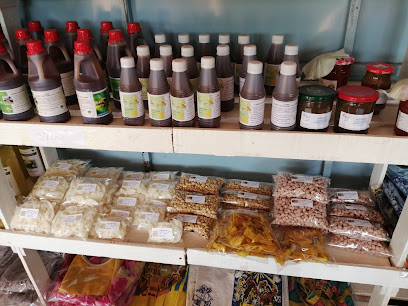
Burkina shop
Discover authentic Burkinabe fashion at Burkina Shop - a treasure trove of vibrant clothing and unique accessories in Bobo-Dioulasso.
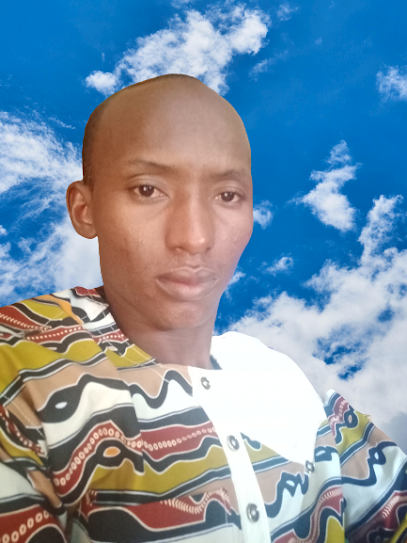
Essential bars & hidden hideouts
Bar Dancing Le Pylône
Discover the vibrant nightlife of Bobo-Dioulasso at Bar Dancing Le Pylône, where music, dance, and local culture create unforgettable memories.
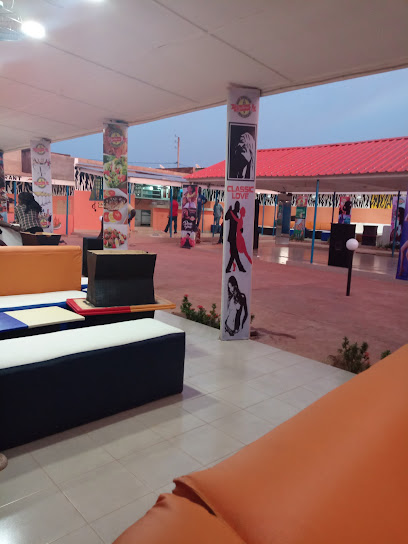
Le Pavé
Discover the vibrant nightlife at Le Pavé, Bobo-Dioulasso’s favorite bar for locals and travelers alike, offering a lively atmosphere and delicious drinks.
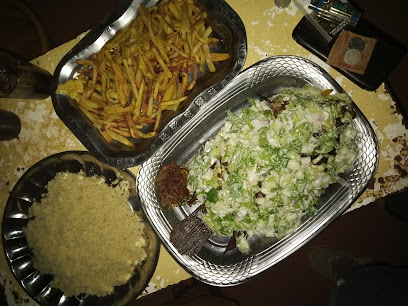
Maquis Bar Dancing Santa Baya
Discover the lively atmosphere and delicious drinks at Maquis Bar Dancing Santa Baya, your go-to nightlife destination in Bobo-Dioulasso.
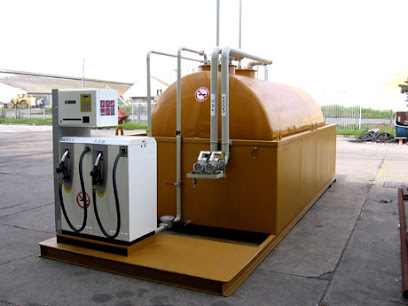
Macumba Night club
Discover the lively atmosphere and vibrant music at Macumba Night Club, the ultimate nightlife destination in Bobo-Dioulasso.

Délice bar
Discover the vibrant atmosphere of Délice Bar, a perfect blend of local culture and refreshing drinks in Bobo-Dioulasso, Burkina Faso.
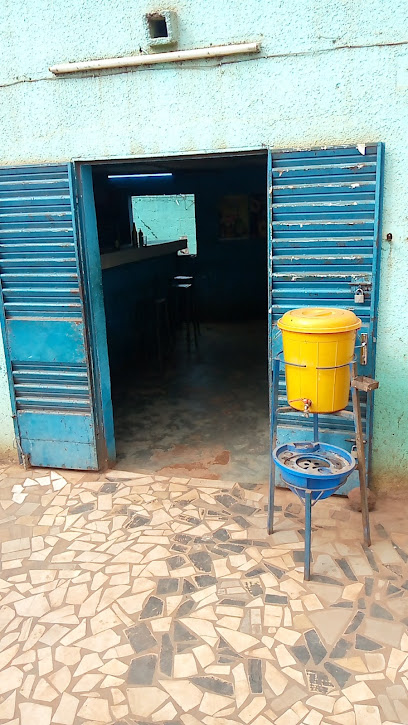
Le NOIR-BLANC
Le NOIR-BLANC: Dive into the heart of Bobo-Dioulasso's nightlife with karaoke, drinks, and vibrant local culture.

Oberge
Discover Oberge in Bobo-Dioulasso: a lively bar offering local drinks, vibrant music, and a welcoming atmosphere for all travelers.
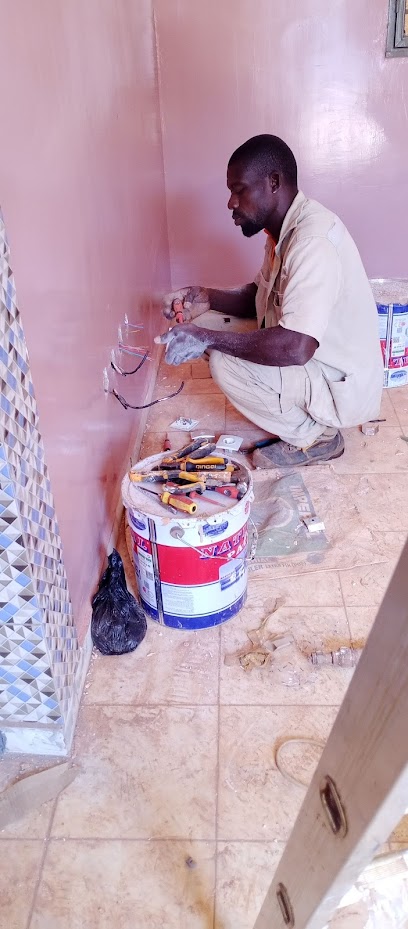
Classico maquis bar
Unwind at Classico Maquis Bar in Bobo-Dioulasso, where vibrant nightlife meets local culture in a welcoming atmosphere.
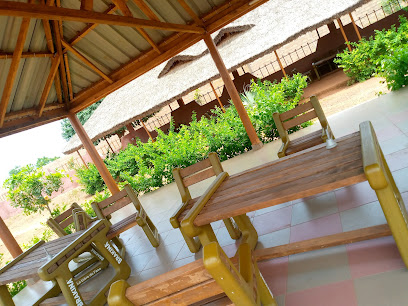
Buddha Bar
Experience the tranquility of Buddha Bar in Bobo-Dioulasso, where relaxation meets local charm amidst a vibrant cultural backdrop.

Paradisio
Paradisio: A vibrant bar in Bobo-Dioulasso offering a unique blend of local flavors and a lively atmosphere perfect for unwinding.

Bar Océan Atlantique
Discover the vibrant nightlife at Bar Océan Atlantique in Bobo-Dioulasso, where refreshing drinks and local culture come together.

Maxima Bar
Experience the vibrant nightlife at Maxima Bar in Bobo-Dioulasso, where refreshing drinks and lively ambiance await you.
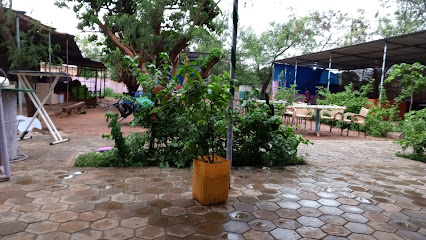
Millénium Bar Dancing
Discover the vibrant nightlife at Millénium Bar Dancing, where music, dance, and local culture come together in Bobo-Dioulasso.
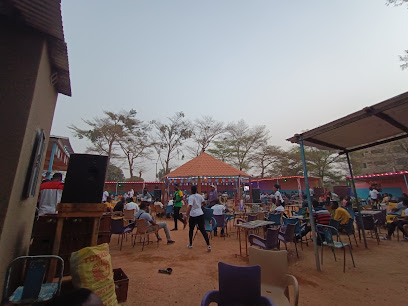
Gomez
Experience the vibrant nightlife of Bobo-Dioulasso at Gomez, where great drinks and a friendly atmosphere await.
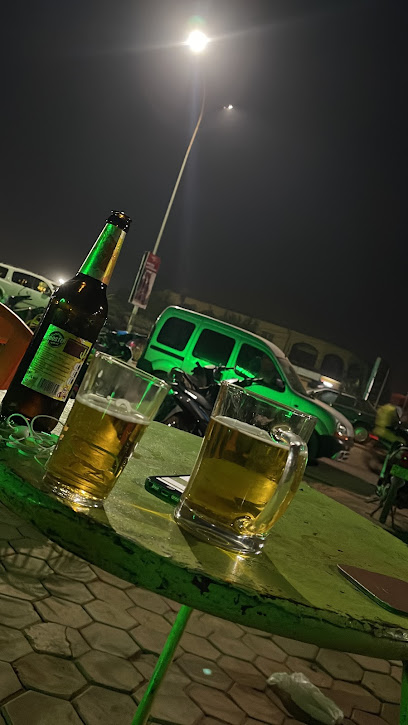
Local Phrases
-
- HelloSalut
[sah-loo] - GoodbyeAu revoir
[oh reh-vwahr] - YesOui
[wee] - NoNon
[nohn] - Please/You're welcomeS'il vous plaît
[seel voo pleh] - Thank youMerci
[mehr-see] - Excuse me/SorryExcusez-moi
[ehk-skew-zeh mwah] - How are you?Ça va?
[sah vah] - Fine. And you?Ça va bien. Et vous?
[sah vah byen. Ay voo] - Do you speak English?Parlez-vous anglais?
[par-leh voo ahn-glay] - I don't understandJe ne comprends pas
[zhuh nuh kohm-prahn pah]
- HelloSalut
-
- I'd like to see the menu, pleaseJe voudrais voir le menu, s'il vous plaît
[zhuh voo-dreh vwahr luh meh-noo seel voo pleh] - I don't eat meatJe ne mange pas de viande
[zhuh nuh mahnj pah duh vyand] - Cheers!Santé!
[sahn-tay] - I would like to pay, pleaseJe voudrais payer, s'il vous plaît
[zhuh voo-dreh peh-yeh seel voo pleh]
- I'd like to see the menu, pleaseJe voudrais voir le menu, s'il vous plaît
-
- Help!Au secours!
[oh seh-koor] - Go away!Allez-vous en!
[ah-leh voo zahn] - Call the Police!Appelez la police!
[ah-peh-leh lah poh-lees] - Call a doctor!Appelez un médecin!
[ah-peh-leh uh may-deh-sahn] - I'm lostJe suis perdu
[zhuh swee pehr-doo] - I'm illJe suis malade
[zhuh swee mah-lahd]
- Help!Au secours!
-
- I'd like to buy...Je voudrais acheter...
[zhuh voo-dreh ash-tey] - I'm just lookingJe regarde juste
[zhuh ruh-gahrd zhew-stuh] - How much is it?Combien ça coûte?
[kohm-byen sah koot] - That's too expensiveC'est trop cher
[say troh shay] - Can you lower the price?Pouvez-vous baisser le prix?
[poo-veh voo bey-say luh pree]
- I'd like to buy...Je voudrais acheter...
-
- What time is it?Quelle heure est-il?
[kehl uhr eh-teel] - It's one o'clockIl est une heure
[eel eh oon uhr] - Half past (10)Dix heures et demi
[dees uhr eh deh-mee] - MorningMatin
[mah-tan] - AfternoonAprès-midi
[ah-preh mee-dee] - EveningSoir
[swahr] - YesterdayHier
[yehr] - TodayAujourd'hui
[oh-zhoor-dwee] - TomorrowDemain
[duh-mahn] - 1Un
[uhn] - 2Deux
[duh] - 3Trois
[twah] - 4Quatre
[kah-truh] - 5Cinq
[sank] - 6Six
[sees] - 7Sept
[sept] - 8Huit
[wheet] - 9Neuf
[nuhf] - 10Dix
[dees]
- What time is it?Quelle heure est-il?
-
- Where's a/the...?Où est...?
[oo eh] - What's the address?Quelle est l'adresse?
[kehl eh la-drehss] - Can you show me (on the map)?Pouvez-vous me montrer (sur la carte)?
[poo-veh voo muh mohn-treh (soor lah kart)] - When's the next (bus)?Quand est le prochain (bus)?
[kahnd eh luh proh-shang (boos)] - A ticket (to ....)Un billet (pour ....)
[uhn bee-yeh (poor)]
- Where's a/the...?Où est...?
History of Bobo-Dioulasso
-
Bobo-Dioulasso, often referred to as Bobo, was founded in the 15th century. The name itself is derived from the Bobo and Dioula ethnic groups who originally settled in the area. The Bobo people, known for their rich cultural heritage, were the primary inhabitants, while the Dioula were traders who brought Islam and commerce to the region.
-
During the height of the Mossi Empire, Bobo-Dioulasso was an important trade hub due to its strategic location. The city connected various trade routes extending from the gold mines of the Sahel to the coastal regions. The Mossi, who were skilled horsemen and warriors, exerted influence over the city, ensuring its prosperity and integration into larger trade networks.
-
In the late 19th century, Bobo-Dioulasso came under French colonial rule. The French recognized the city's strategic importance and invested in its infrastructure. They built roads, railways, and administrative buildings, transforming Bobo-Dioulasso into a key administrative and economic center in Upper Volta, the former name of Burkina Faso.
-
The Grand Mosque of Bobo-Dioulasso, constructed in 1880, stands as a testament to the city's Islamic heritage. Built by the city's Muslim community, the mosque is an architectural marvel featuring traditional Sudano-Sahelian style with its distinctive mudbrick minarets and wooden beams. It remains a central place of worship and cultural identity for the city's inhabitants.
-
Bobo-Dioulasso is renowned for its vibrant cultural life, particularly its music and dance. The city is home to the Bobo and Dioula ethnic groups who celebrate various festivals such as the Semaine Nationale de la Culture (National Culture Week). This festival showcases traditional music, dance, art, and crafts, attracting visitors from across the country and beyond.
-
Today, Bobo-Dioulasso is Burkina Faso's second-largest city and remains a cultural and economic hub. The city blends its rich historical legacy with modern development. Markets, such as the Grand Marché, and attractions like the Dafra River and the Kibidwé Artisan Village, continue to draw tourists, reflecting the city's enduring significance in the region.
Bobo-Dioulasso Essentials
-
Bobo-Dioulasso is located in the southwestern part of Burkina Faso. The nearest international airport is Bobo-Dioulasso Airport (BOY), which is well connected to major cities in West Africa. Alternatively, you can fly into Ouagadougou, the capital of Burkina Faso, and take a domestic flight or a bus to Bobo-Dioulasso. The bus trip from Ouagadougou to Bobo-Dioulasso typically takes around 5-6 hours and is operated by several reputable companies.
-
Getting around Bobo-Dioulasso is relatively easy. Taxis are widely available and affordable; just make sure to negotiate the fare before starting your journey. Moto-taxis (motorbike taxis) are another popular mode of transport. For those who prefer public transportation, minibuses and buses connect various parts of the city. Car rentals are also available for those who wish to explore the surrounding areas at their own pace.
-
The official currency in Burkina Faso is the West African CFA Franc (XOF). Credit cards are accepted in some hotels, restaurants, and shops, but it is advisable to carry cash, especially in smaller establishments and markets. ATMs are available in Bobo-Dioulasso, but ensure you have enough cash for your needs as ATM availability can sometimes be unreliable.
-
Bobo-Dioulasso is generally safe for tourists, but it is important to take standard precautions. Avoid walking alone at night and be cautious in crowded areas to prevent pickpocketing. Some neighborhoods, such as Tiefora and Farakan, have higher crime rates and should be avoided after dark. Always keep your belongings secure and be aware of your surroundings.
-
In case of an emergency, dial 17 for police assistance, 18 for the fire department, and 15 for medical emergencies. The main hospital in Bobo-Dioulasso is the Centre Hospitalier Universitaire Souro Sanou, which provides medical care. It is advisable to have travel insurance that covers medical emergencies. Pharmacies are also available for minor health issues.
-
Fashion: Do dress modestly, especially when visiting religious or cultural sites. Avoid wearing revealing clothing. Religion: Do respect local customs and traditions. Always ask for permission before taking photos in religious places. Public Transport: Do be respectful and considerate of others. Don't eat or drink on public transport. Greetings: Do greet people with a handshake. A friendly 'Bonjour' (Hello) is always appreciated. Eating & Drinking: Do try local dishes and accept food offerings graciously. Don't refuse hospitality, as it is considered impolite.
-
To experience Bobo-Dioulasso like a local, visit the Grand Marché for a taste of local life and to buy traditional crafts. Engage with locals, as they are generally friendly and willing to share stories about their culture and history. Don't miss the chance to visit the beautiful Bobo-Dioulasso Mosque and the Dafra sacred fish pond. For a unique experience, attend a live performance of traditional music and dance, which is an integral part of Bobo-Dioulasso's cultural heritage.
Trending Landmark in Bobo-Dioulasso
-
Parc Bangr Weogo
-
Maison de la Culture
-
Ouagadougou Cathedral
-
Monument of National Heroes
-
Omnisport Stadium in Bobo Dioulasso
-
KB et frères
-
BIBI PARC
-
Place de la Femme
-
Grande Mosquée de Bobo-Dioulasso
-
Hotel Villa Rose
-
Grand marché de Bobo-Dioulasso
-
Université AUBE Nouvelle/Bobo Dioulasso
-
Amora restaurant
-
National Museum of Burkina Faso
-
Bobo-dioulasso
Nearby Cities to Bobo-Dioulasso
-
Things To Do in Dédougou
-
Things To Do in Wa
-
Things To Do in Koudougou
-
Things To Do in Ouagadougou
-
Things To Do in Ouahigouya
-
Things To Do in Ziniaré
-
Things To Do in Tamale
-
Things To Do in Bamako
-
Things To Do in Sunyani
-
Things To Do in Yamoussoukro
-
Things To Do in Daloa
-
Things To Do in Kumasi
-
Things To Do in Sanniquellie
-
Things To Do in Abidjan
-
Things To Do in Voinjama






